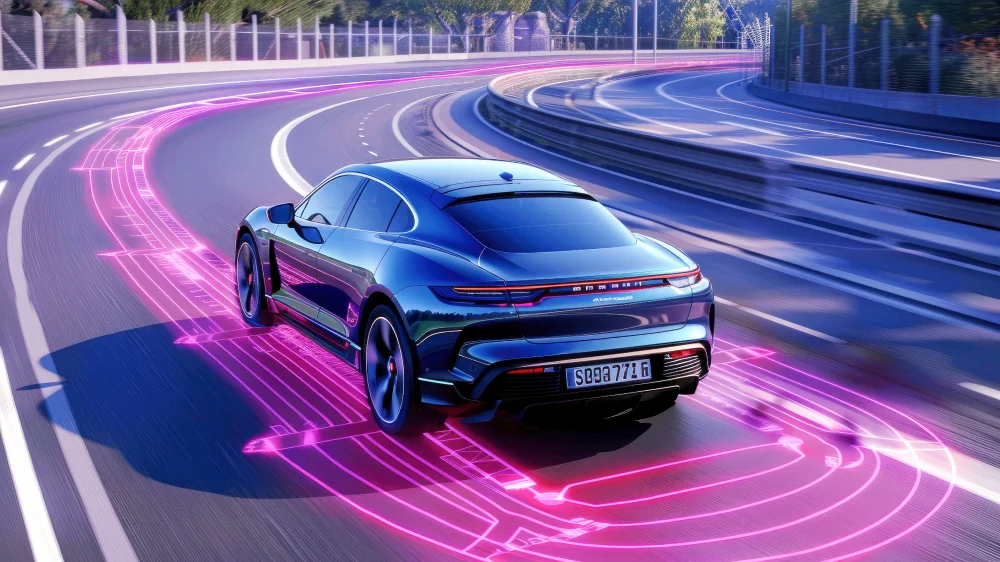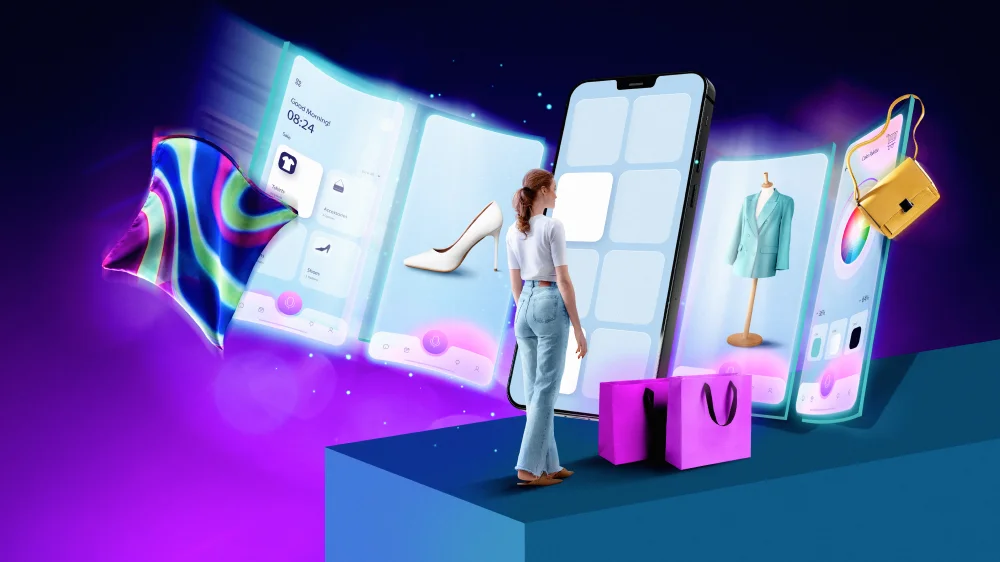Table of Contents
the future of technology in the next 50 years, from self-driving cars and AI-driven personalization to body implants and decentralized finance (DeFi). Discover how these innovations will shape our lives, cities, and industries.
Predictions for the Next Half-Century
The future of technology is a fascinating topic that often generates excitement, wonder, and sometimes skepticism. While predicting technological advancements can be tricky—some forecasts from the past, like flying cars and meals in pill form, still seem far-fetched—other predictions, such as the concept of computer tablets in Arthur C. Clarke’s 1968 novel 2001: A Space Odyssey, proved to be ahead of their time.
Despite the risks of being wrong, speculating about future technologies helps us understand where humanity might be headed. In fact, research shows that thinking about the future can inspire creativity, fulfillment, and optimism, which are key to improving our lives. By focusing on where technology stands today and how it will evolve, we can guide efforts to develop innovations that enhance human capabilities and solve major challenges.
So, what could the world look like in 50 years? Let’s explore some of the most promising technological advancements on the horizon.[1]
1. Self-Driving Cars: Revolutionizing Transportation

Self-driving cars are no longer just a futuristic idea—they are becoming a reality. Companies like Tesla, Waymo, and General Motors have made significant strides in developing autonomous vehicles. While we’re not yet at full automation, current systems, such as Tesla’s Autopilot and GM’s Super Cruise, are gradually easing us into a world where we can travel without touching the wheel.
In the next 50 years, self-driving cars will likely become the norm, eliminating human error from the driving equation. These vehicles will be equipped with sophisticated sensors, AI, and machine learning algorithms to navigate cities and highways safely. With regulatory hurdles, ethical concerns, and technological advancements in the mix, the transition to fully autonomous transportation could happen within the next decade.[2]
2. Rise of Robots in Everyday Life
While robots today are still limited in their functions, they are gradually gaining the ability to take on more complex tasks. In the future, robots could play a crucial role in industries like healthcare, manufacturing, and rescue operations.
Robotic assistants will free up humans to perform more intellectually challenging tasks, while automation will likely lead to job displacement in many sectors. However, this can also create new opportunities for training and innovation. For example, robots could perform dangerous tasks like firefighting, search-and-rescue missions, and space exploration, reducing the risk to human lives.
In the distant future, we may even see robots and humans working together as part of a hybrid intelligence system, combining the strengths of both biological and artificial intelligence.[3]
3. Personalized Tech Experiences: The Age of AI

Artificial intelligence is already transforming how we interact with technology. In the next 50 years, AI will be far more advanced, offering hyper-personalized experiences that predict what we want before we even ask.
Companies like Amazon, Google, and Facebook already use AI to personalize content and shopping experiences based on user data. This will only get more sophisticated, with predictive AI making personalized recommendations for products, services, and even content across all digital platforms.
In addition, virtual and augmented reality (VR/AR) will blur the lines between physical and digital worlds, allowing users to experience fully immersive, customized interactions. Imagine trying on clothes virtually or visualizing how a piece of furniture would look in your home before making a purchase. The possibilities are endless.[4]
4. Beyond 5G: Entering the 6G Era
While 5G networks are already being deployed worldwide, researchers are already looking ahead to 6G and even beyond. 5G promises faster speeds, lower latency, and better connectivity for devices, but it has its limitations, including short-range signals and faster battery drain.
6G will likely solve many of these problems, offering speeds up to 1TB per second, enabling new technologies like tactile internet, holographic communications, and even machine-to-machine communication. This hyper-connectivity will revolutionize everything from healthcare to entertainment, creating a more interconnected and seamless digital world.[5]
5. Body Implants and Augmentations: Merging Humans with Technology
Wearable tech is already popular, with smartwatches and fitness trackers becoming mainstream. However, in the future, we may move towards more invasive technologies, such as microchipping and body implants.
In the next few decades, you might see people with implantable devices that enhance their abilities, from cashless payments to advanced prosthetics. For example, Viktoria Modesta, a model who had her leg amputated and replaced with a prosthetic leg, demonstrates how medical advancements can not only improve quality of life but also become a new form of fashion and self-expression.
With advancements in brain-computer interfaces, the possibilities for body augmentation will be vast, giving individuals enhanced sensory abilities, health monitoring, and more.[6]
6. Smart Cities: The Future of Urban Living
Smart cities, powered by Internet of Things (IoT) technologies, are already being implemented in various parts of the world. In the future, these cities will use data and advanced technologies to optimize everything from transportation to energy consumption, creating a more sustainable and efficient urban environment.
Autonomous vehicles, drones, AI, and augmented reality will transform how cities operate, from reducing traffic congestion to providing real-time public services. AI-driven predictive analytics will help with everything from managing traffic flow to forecasting weather, significantly enhancing the quality of life for urban dwellers.[7]
7. Biotechnological Breakthroughs in Healthcare

The next 50 years could bring dramatic changes in healthcare, thanks to advancements in biotechnology. Imagine a future where doctors can predict heart attacks, diagnose diseases early, and personalize treatments based on genetic data.
Big data analytics, AI, and genetic engineering will enable healthcare systems to develop more precise and efficient treatments. These technologies will also help create personalized health plans for individuals, improving patient outcomes and reducing the strain on healthcare systems.[8]
8. Decentralized Finance (DeFi): The Future of Banking
Decentralized Finance (DeFi) platforms, powered by blockchain technology, are already disrupting traditional banking services. In the next 50 years, we can expect DeFi to become more mature and integrated into mainstream financial systems.
With secure, transparent, and efficient blockchain technology, DeFi platforms will allow people to lend, borrow, and trade without intermediaries. As DeFi evolves, it could revolutionize not just finance but also sectors like healthcare, real estate, and supply chain management.[9]
Conclusion: A Bright Future Ahead
The future of technology holds incredible potential for transforming our lives. While the specific details may be uncertain, one thing is clear: the rapid development of new technologies is poised to improve human existence, create new opportunities, and solve some of the world’s most pressing challenges.
As we approach this future, we must also be mindful of the challenges that come with technological progress. Privacy concerns, ethical dilemmas, and security risks will need to be addressed to ensure that technology serves humanity’s best interests. Nevertheless, with the right balance, the technological landscape of the next 50 years promises to bring about significant improvements to both the digital and physical worlds.[10]
FAQs: The Future of Technology in 50 Years
1.What is the future of self-driving cars?
In the next 50 years, self-driving cars are expected to become the norm, making transportation safer, more efficient, and widely accessible. These autonomous vehicles will reduce human error, enhance road safety, and integrate seamlessly into smart city systems.
2.Will robots take over jobs in the future?
Yes, robots are likely to automate many tasks, especially in industries like manufacturing, healthcare, and rescue operations. While this may lead to job displacement, it will also create new opportunities for innovation and employment in fields like robot programming and maintenance.
3.How will AI impact personalized technology experiences?
AI will revolutionize how we interact with technology by personalizing recommendations, content, and services. By analyzing vast amounts of data, AI will predict user preferences and enhance engagement in ways that feel natural and intuitive.
4.What advancements will we see beyond 5G?
The next step after 5G is 6G, which promises lightning-fast speeds, ultra-low latency, and expanded connectivity. This will enable emerging technologies like tactile internet, holographic communications, and machine-to-machine communication, transforming industries like healthcare, entertainment, and logistics.
.How will body implants and augmentations affect human life?
In the future, body implants and augmentations could enhance physical and cognitive abilities, offering a range of possibilities from improved prosthetics to brain-computer interfaces. These advancements will empower individuals to live more efficiently and creatively, potentially blending technology with human biology.
For more information:https://watchnewz.com/
